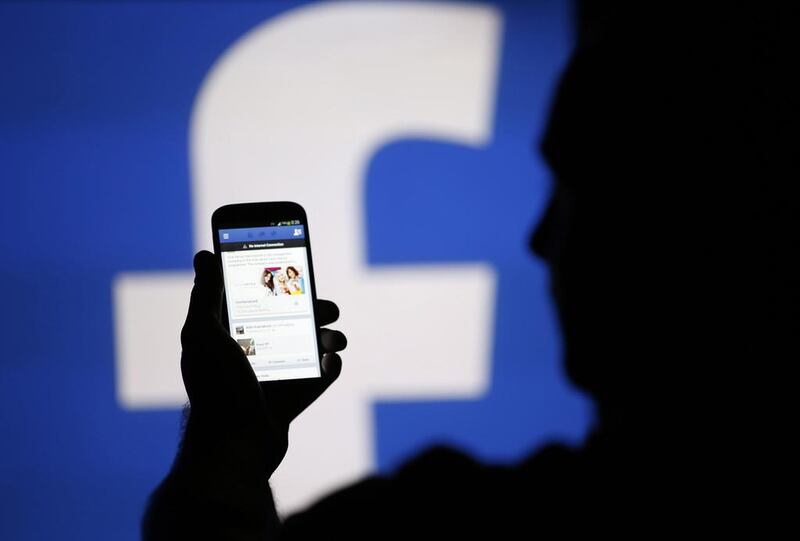Social media influencers who make money from promoting brands and businesses will need to secure a media licence under new regulations.
The move would work to professionalise and regulate the industry, the National Media Council said on Tuesday.
The licence would be similar to those that magazines and newspapers acquire from the authorities.
It is not intended to constrain creativity but to ensure earnings are above board and standards are high, the council said.
Social media influencing has become big business for personalities, with a large number of followings on channels like Instagram in particular, commanding fees of tens or hundreds of thousands of dirhams for promotional posts.
__________________
Social influencers
Social media influencers: what are they and how do they stay on the right side of the law?
$5,000 a post: the power of UAE’s social media influencers
Meet the Middle East social media stars of My Fabulous M.E.
Is Instagram's popularity declining with new algorithm?
The inside view of Forbes’ new list of the top online influencers
The majlis: What defines a social-media influencer?
__________________
Make-up and fashion brands, luxury chains and entertainment activities are often seen promoted by UAE-based social media celebrities – an activity that was not regulated in the past.
On February 28, the NMC launched a new electronic media regulation system. Anyone involved in electronic media commercial activities will need to register and have a licence before the end of June.
Penalties for failing to do so include fines up to Dh5,000, verbal or official warning, and/or closure of the website or account.
News and entertainment websites that already possess a licence to publish will not be affected.
NMC director general Mansour Ibrahim Al Mansouri said: "The new regulations are part of the Council’s plan to promote and develop an advanced legislative and regulatory environment for the UAE media sector, keeping it up-to-speed with regards to all technological developments that have transformed media in recent times.
"Today, electronic media has become a highly influential and widespread tool; it is imperative that we enhance its reliability. Digital media is one of the fastest-growing sectors in the Middle East, especially videos, games and e-books. Regulating this sector will attract new global investments, which, in turn, will improve its development and competitiveness."
He added that the new guidelines seek to enhance the contribution of electronic media to the wider publishing industry, providing legal protection for the outlets and enhancing their competitiveness, all in an effort to increase advertising spend and grow the sector as a whole.
For instance, under the new law, global companies who sell media content online that operate from abroad can now acquire a licence and open branch offices in the UAE.
“So we are opening the door for global companies to open branches in the UAE,” he said.
Ahmad Bashour, general manager of ITP Live, one of the region’s largest social influencer agencies, said the industry has been longing for such a move.
“This is great news for the influencer marketing industry here in the UAE,” he said. “Brands, agencies, platforms and professional influencers will only benefit from this positive step.
“ITP Live has been calling for increased regulation and more transparency, which this market was in need of and the NMC has taken this bold move to keep the standards high.”
He said this also shows that the government acknowledges that influencers are now a part of the overall media landscape.
Stanley Ekure, an American social media influencer based in the UAE known to his Snapchat followers as Antara Bilal bin Shadad Al Mazrouei, said the license is a positive move for both influencers and the market.
He personally would not have to acquire the new NMC license because his role as influencer is to promote Emirati culture and aspiring local projects without getting paid. Nonetheless, he welcomed the move to regulate the activity.
“I personally do not think it is going to affect your business or anything like that, it’ll just be a credential.
“I believe they are trying to make people accountable ... regulation in anything is good because it brings stability.
“And I believe there are certain requirements before you get the license, so they will tell you what standards you should have in terms of your content.
“I think it is a forward thinking idea.”
Mr Ekure also believes there should also be a dialogue between the council and influencers.
“They could have a meet-and-greet and see what we need as social media people to be successful, because at the end of the day we are promoting the UAE so there should be a bridge where we can express ideas.”







